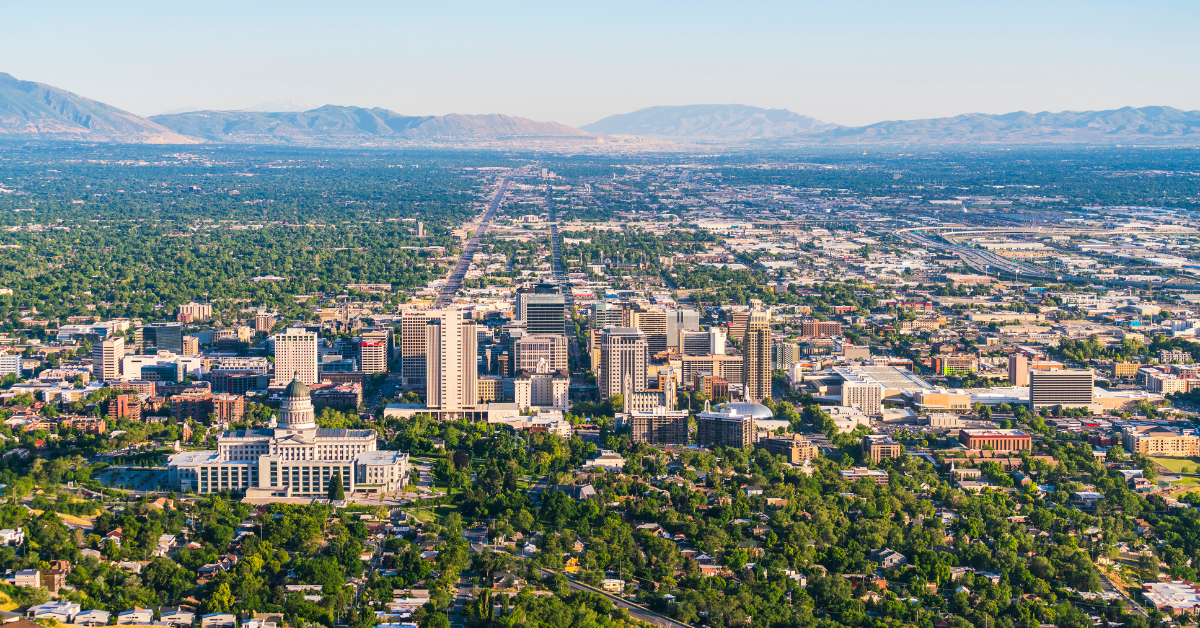In Japanese, Utah is written as “猶他州.” While this representation is simply a phonetic transcription, it carries an exotic and distinctive resonance for Japanese people. Utah is recognized for its majestic nature, the culture of Mormonism, and as a stage for sports, making it a state that draws attention from multiple perspectives.
The Origin of the Kanji Representation “猶他州”
The kanji representation of Utah, “猶他,” comes from the Chinese phonetic transcription that was later adopted in Japanese. The characters themselves have no special meaning in Japanese; rather, it is a representation of the sound “Utah.”
Examples of other U.S. states written in kanji are shown below:
| State | Kanji Representation | Reading |
|---|---|---|
| California | 加州 | Ka-shū |
| New York | 紐約州 | New York-shū |
| Texas | 得州 | Toku-shū |
| Utah | 猶他州 | Utah-shū |
Such transcriptions prioritize phonetics over meaning, which gives them an exotic and foreign impression for Japanese readers.
The Natural Image of Utah in the Japanese Mind
When Japanese people think of Utah, the first thing that comes to mind is its breathtaking nature. The state is home to the “Mighty Five” national parks, each of which fascinates visitors worldwide.
| National Park | Features | Japanese Impression |
|---|---|---|
| Zion | Massive red canyons | Overwhelming scale |
| Bryce Canyon | Countless hoodoos | Fantastical, like a movie |
| Arches | Rock arches | Perfect for photography |
| Canyonlands | Vast canyon systems | Majestic and rugged |
| Capitol Reef | Unique rock formations and ruins | Diversity of landscapes |
These landscapes are perceived as natural wonders on a scale that cannot be seen in Japan, leaving a lasting impression on Japanese travelers.
Utah as a Land of Religious Culture
Utah is globally recognized as the headquarters of Mormonism (The Church of Jesus Christ of Latter-day Saints). In downtown Salt Lake City, the great temple stands as a central symbol, intertwining faith with daily urban life.
For many Japanese, who have little exposure to strongly religious regions, Utah leaves the impression of being a “religiously unique state.” At the same time, this uniqueness is often viewed positively as a cultural attraction, providing opportunities for learning and cross-cultural experiences.
Utah as a Stage for Sports
Utah also leaves a strong impression on Japanese people through sports. Most famously, it is home to the NBA team Utah Jazz. In the 1990s, legends like John Stockton and Karl Malone brought the team to global prominence, and today Salt Lake City remains passionate about basketball.
Additionally, Utah is a major hub for winter sports. The 2002 Winter Olympics brought worldwide attention to Salt Lake City, and for Japanese skiers and snowboarders, it remains a symbolic location.
| Field | Features | Japanese Impression |
|---|---|---|
| Basketball | NBA’s Utah Jazz | Passionate fan culture |
| Skiing/Snowboarding | World-class resorts | Olympic host city |
| College Sports | University of Utah football | Vibrant student sports scene |
This fusion of sports and nature makes Utah feel more relatable to Japanese people.
Utah’s Economy and Development
Beyond nature and religion, Utah is also recognized for its economic growth. Recently, the area known as “Silicon Slopes” has emerged as a hub for IT and startup companies.
Mining and tourism also play central roles in the state’s economy, with tourism revenue being essential for development.
| Sector | Key Aspects | Japanese Perception |
|---|---|---|
| IT Industry | Software companies, startups | A new business hub |
| Mining | Copper and other resources | A Western-style industry |
| Tourism | National parks, resorts | Economy tied to nature |
These aspects show that Utah is much more than just a tourist destination.
Utah as a Place for Education and Study Abroad
Utah also has a strong reputation in education. The University of Utah is highly regarded in medicine and engineering, attracting a number of Japanese exchange students.
Japanese students often choose Utah for its calm academic environment and safety. Away from the distractions of major metropolitan areas, Utah provides an atmosphere that allows for focus and research, making it an attractive choice for scholars.
Utah’s Appeal for Japanese Travelers
For Japanese people, Utah is a land of diverse appeal: tourism, education, sports, and religious culture all intersect here. In travel magazines and television programs, it is often described as a “state where nature and culture converge.”
| Aspect | Example | Japanese Impression |
|---|---|---|
| Nature | The Mighty Five | Overwhelming scale |
| Religious Culture | Salt Lake City temple | Cross-cultural learning |
| Sports | Utah Jazz, ski resorts | Passion and excitement |
| Education | University of Utah | Place for learning |
| Economy | Growing IT hub | A future-oriented state |
This multilayered appeal shapes the way Japanese people perceive Utah.
Conclusion
Utah, represented in kanji as “猶他州,” stands out with its exotic and memorable form. Its majestic landscapes, religious significance, sports culture, and economic and educational strength combine to give Japanese people a distinctive impression.
For Japanese travelers and students, Utah is not only a destination for sightseeing but also a stage for learning, sports, and even business opportunities. The unique resonance of the word “猶他” symbolizes Utah’s diverse and profound image, ensuring it will continue to capture Japanese interest in the future.






